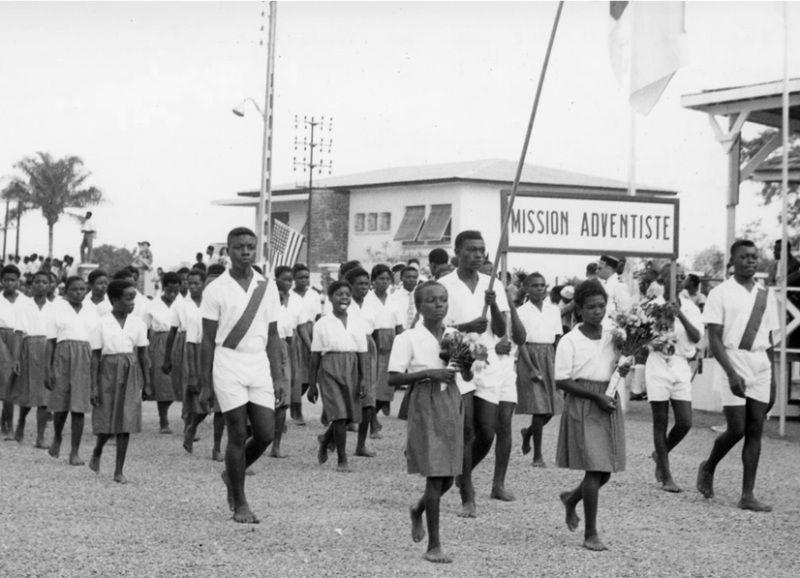
African Decolonization: Rapid Unfolding--Country Trends

Figure 1.--Beginning with Ghana (1956), Africa experienced a very raid period od decolonization. Here we see the indepence parade in Yaoundé or Douale (1960). This is a groop of Seven Day Adevenists. in the Independence Day parade. In less than a decade, a continent with only four indeendet countries, was largely independent. A political event of stunning conseqience. It unleashed a short-lived period of optimism about the future.
|
|
Belgium, Britain, and France rapidly moved toward decolonization. In less than adecade, most of Africa was independent. The process began in Ghana (1956). They were shortly followed by one colony after another. African leaders pushed for immediate independence. And the colonia powers were unwilling to resist demands that might lead to disordrs. Nor were they willing to shoulder the massive costs that would be needed to prepare their colojie for independence. This might have been possible before Word War II as the nationlist movements were still nascent, but after the War, the choices were rapid decolonization or havig to face violence and resistance.
We have begun to develop pages on these independence experiences: Cameroon (1960). All of the African countries involved in decolonization were unprepared, but some more than others. Here the Belgian Congo was a speciual case and a recipie for disaster, the aftermath continues to this day. These countries had poorly trained leaders. Few understood th challenge they were taking on. Most thought that economic prosperity would quickly follow as aesulr of indepndence. Many were convinced that Soviet styled political and economic organization provided a sure proof blueprint for rapid modernization and conveniently permanent powerwithout pesky, inconvenient elections. This lead to Africa and the newly independent countriesbecoming a new front in the Cold War. The major European holdout was Portugl. This was a small European ciunty, but with very large African colonies (especially Angola and Mozambique). These would require lengthy wars of national liberation. The future of these countrues, however, would not be any more successful than the countries granted independence in a constitutional fashion.
CIH

Navigate the Children in History Website:
[Return to the Main African economics--Decoloniztion page]
[Return to the Main African economics page]
[Return to the Main decolonization page]
[Return to the Main African page]
[Return to the Main economics country page]
[Return to the Main Economics page]
[Return to the Main Cold War page]
[Return to the Main war and crisis page]
[Introduction]
[Biographies]
[Chronology]
[Climatology]
[Clothing]
[Disease and Health]
[Economics]
[Geography]
[History]
[Human Nature]
[Law]
[Nationalism]
[Presidents]
[Religion]
[Royalty]
[Science]
[Social Class]
[Bibliographies]
[Contributions]
[FAQs]
[Glossaries]
[Images]
[Links]
[Registration]
[Tools]
[Children in History Home]
Created: 4:02 AM 12/31/2015
Last updated: 4:02 AM 12/31/2015



